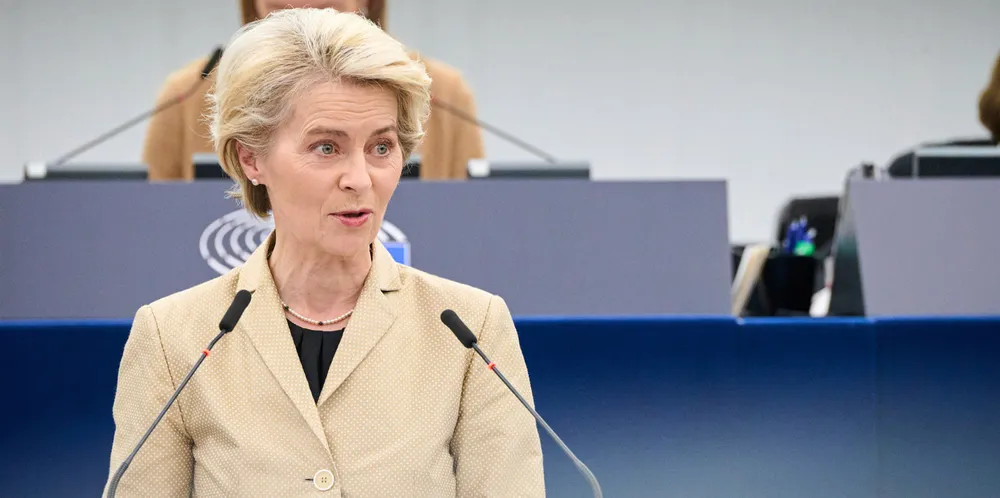EU to ease state aid rules for green energy as US IRA 'could lead to unfair competition'
European Commission President von der Leyen to propose new framework allowing member states to 'match subsidies of third countries' for companies to stay in bloc

The EU plans to ease state aid rules, allowing member states to “match subsidies of third countries” to nurture their clean-tech industries and prevent the US Inflation Reduction Act (IRA) leading to “unfair competition”, Ursula von der Leyen said.
The European Commission President in a speech to the European Parliament on Wednesday stressed that while she acknowledges that the IRA entails a significant investment plan for the energy transition that sets standards for green tech sectors, supporting the transition must be done “in a spirit of cooperation and in a way that ensures a level playing field”.
“It should be a race against time, not a race against each other. … Yet, there is a risk that the Inflation Reduction Act can lead to unfair competition,” von der Leyen said.
“We need to address these issues. We need to give our answer, our European IRA.”
Aware of the US president's fragile situation in Congress, Von der Leyen proposed a two-sided strategy that would assert European interests, while at the same time trying to not antagonise the Americans too much.
To counter the ‘Buy American!’ logic contained in the IRA, discriminatory tax breaks and subsidies that could be to the disadvantage of EU companies, the Commission plans to adjust EU rules to facilitate national public investment in the energy transition and reassess the need of further European public investment in the transition, she said – while simultaneously working with the US to “address some of the most concerning aspects of this law”.
Incentive to invest in the EU
The EU commission already in January plans to present a new state aid framework to make rules simpler and faster for the “years to come”. It will allow member states to take into account global conditions when providing aid for certain clean-tech manufacturing products.
“That means, for some greenfield investments, member states can match the subsidies of third countries,” von der Leyen said.
“This will give an incentive to companies to continue to invest in the Europe Union and not to invest in the United States, but to be here, to stay here and to invest in the European Union.”
A more tricky part could be the commission president’s second suggestion.
To avoid that financially strong countries such as Germany could use their “deep pockets” to grant aid to large-scale investments in strategic sectors that more wobbly countries, mostly in southern Europe, cannot match, von der Leyen by next summer also plans to set up a new European ‘sovereignty fund’.
It would guarantee common funding for a joint industrial policy – EU speak for shared debt, a concept abhorred by Germany and other northern EU members.
Von der Leyen’s proposals are to be discussed at a meeting of EU heads of governments today (Thursday).
(Copyright)